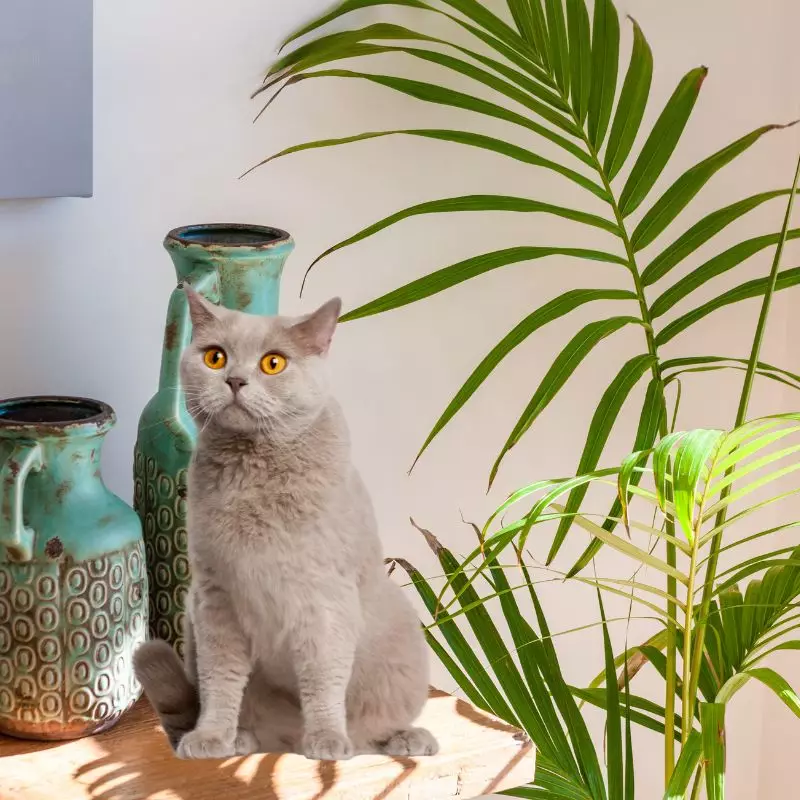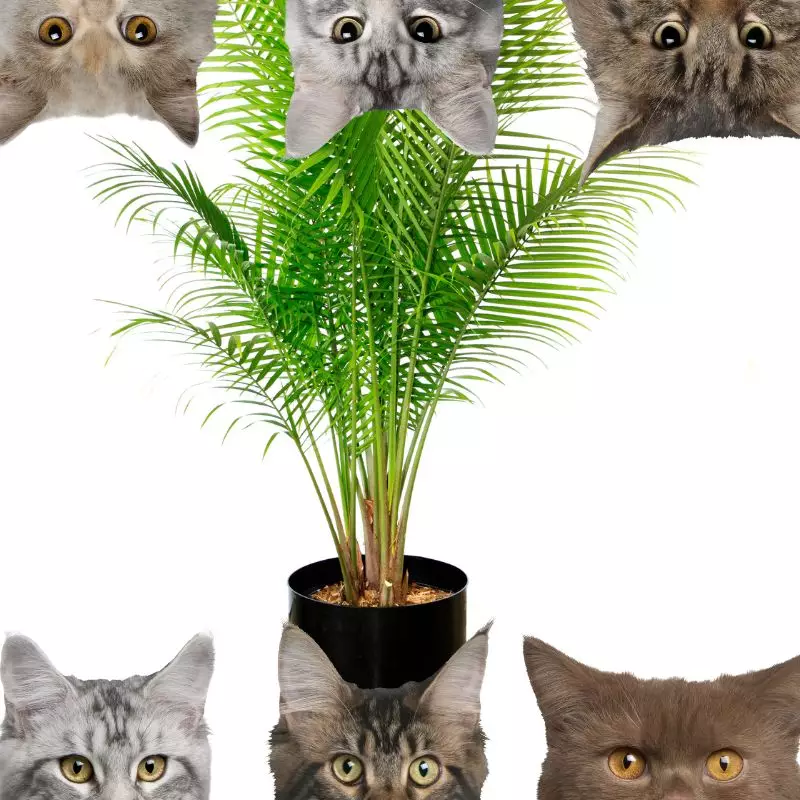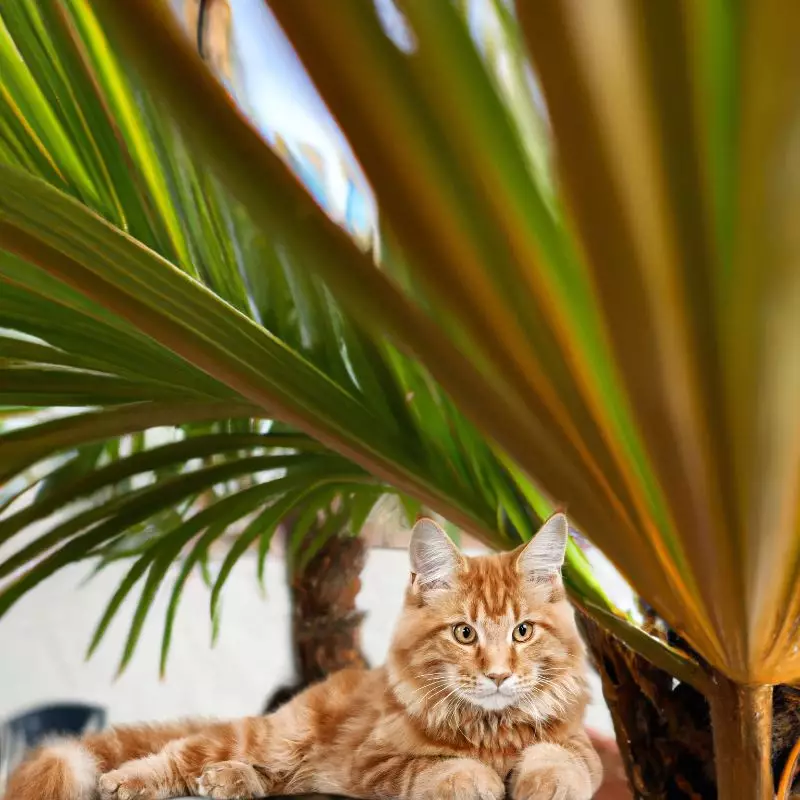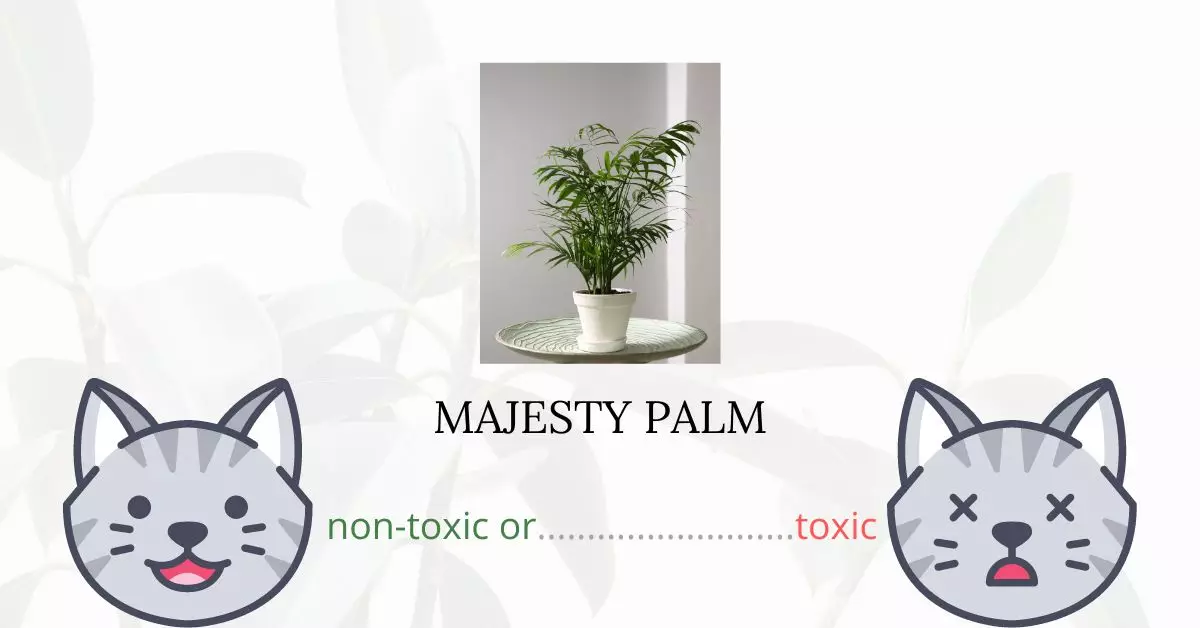The Majesty Palm is non-toxic to cats, as confirmed by reputable organizations such as the American Society for the Prevention of Cruelty to Animals (ASPCA). However, it’s essential to understand that while the plant does not contain harmful toxins, direct contact or ingestion might not always be in the best interest of your feline’s health.
This article was crafted in collaboration with a team of experienced DVMs (doctors of veterinary medicine). Their expert insights, combined with our thorough research from high-authority websites such as ASPCA and PetMD, ensure that we provide you with accurate and up-to-date information regarding the potential risks associated with various plants, specifically the Majesty Palm in this context. Always monitor your cat’s behavior around household plants, even those deemed safe, to ensure their overall well-being.
Can Cats Eat Majesty Palm?

According to the ASPCA, the majesty palm is completely non-toxic to cats. That means none of the plant’s main components, including the leaves, stems, trunk, and roots, contain any compounds that can harm your cat. Therefore, if your cat can’t get enough of your hand, you shouldn’t worry about their health.
Even though it is safe, if your cat consumes a lot of its leaves, it could lead to gastric problems. However, these animals often only consume a very small amount of plants. Therefore, if you see your cat eating it, you shouldn’t be alarmed.
What is Majesty Palm?

The Majesty Palm (Ravenea rivularis) is a large houseplant despite the fact that in its natural environment it may grow up to 90 feet tall. It has long, arching green fronds on many stems.
It has the appearance of a royal palm when mature and a kentia palm when young. This is high praise because these two indoor palms are some of the most exquisite.
When grown indoors, the majestic palm is a slow-growing plant that only increases in height by a maximum of 1 foot each year or approximately 10 feet.
Because it can be unpredictable, the Majesty palm has a negative reputation. It takes a careful balancing of many factors, including heat, light, and fertilization, to successfully grow grandeur palms.
Keeping Cats Away From Majesty Palm

The secret to getting cats to stop chewing on houseplants is to make them taste or smell terrible. Try pepper spray or a spray that is bitter, like bitter apple, over and under the leaves. Make sure the spray won’t harm cats.
Since citrus oils do not appeal to cats, peels can be safely applied to the soil. Avoid using citrus essential oils to frighten your cat because they can be poisonous to cats. They can harm the liver when ingested or absorbed through the skin.
The most effective way to prevent your cats from touching your plants is by training them. This method can be a bit challenging and may cost you time but you will substantially benefit from it once your cat learns what you are teaching him. Not to mention that your plants will thank you too for saving them from getting damaged!
Plants to Avoid For Your Cats
If you are a cat owner and unsure if the plants growing in your yard are harmful to your cats, check out this list of toxic plants for cats. You can also check our list of non-toxic plants for cats.





